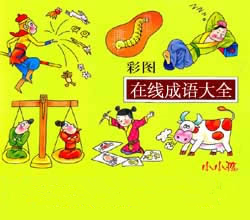Dragon Boat Festival_端午节英语作文200字
Dragon Boat Festival, often known as Tuen Ng Festival or Duan Wu Festival, is a traditional Chinese festival held on the fifth day of the fifth month of the Chinese calendar. It is also known as the Double Fifth. It has since been celebrated, in various ways, in other parts of East Asia as well, most notably Korea.
The exact origins of Duan Wu are unclear, but one traditional view holds that the festival memorializes the Chinese poet Qu Yuan of the Warring States Period. He committed suicide by drowning himself in a river because he was disgusted by the corruption of the Chu government. The local people, knowing him to be a good man, decided to throw food into the river to feed the fishes to prevent them from eating Qu's body. They also sat on dragon boats, and tried to scare the fishes away by the thundering sound of drums aboard the boat and the fierce looking dragon-head in the front of the boat.
In the early years of the Chinese Republic, Duan Wu was also celebrated as "Poets' Day", due to Qu Yuan's status as China's first poet of personal renown.
Today, people eat zongzi (the food originally intended to feed the fishes) and race dragon boats in memory of Qu's dramatic death.
端午节,通常被称为端午节或是端午祭,是中国日历上五月五号的一个传统节日,它也被称为五五。人们以多种方式庆祝端午节,甚至在东亚地区,最明显的是韩国。
端午的确切起源尚不明确,但有传统的观点认为,端午是为了纪念中国战国时期诗人屈原。他由于反对楚国国政腐败而投河自尽。当地的人,知道他是一个好人,于是将食物投放进河里喂鱼,以防止它们吃了屈原的尸体。他们坐在龙舟上,并试图用敲鼓的方式和船头具有龙头的船来吓跑鱼
在早期的中国,端午还被称作为“诗人节”,因为屈原是作为中国第一个个人声誉的诗人。
今天,人们用吃粽子(食物原本打算喂养鱼)和赛龙舟来纪念屈原的死。
相关作文: 找针、打预防针、新学期的打算、高兴、向你推荐一本书、书带给我的乐趣、心中那场雪、秋天的果园作文200字、夏天的田野、我最喜欢科学作业标签:英语
热门作文成语素材
- 匪夷所思 匪:不是;夷:平常。指言谈行动离奇古怪,不是一般人根据常情所能想象的。
- 爱惜羽毛 羽毛:比喻人的声望。比喻为珍惜自己的名声,行事十分谨慎。
- 匪夷匪惠 夷:殷末周初的伯夷;惠:春秋时鲁国的柳下惠。既不是伯夷,又不是柳下惠;不具备这两位贤人的品德。形容才德不高而又驾驭的人。
- 分茅裂土 原指古代帝王分封诸侯时举行的仪式。后称分封诸侯。
- 百卉千葩 常比喻事物丰富多彩,景象繁荣兴盛。
- 背城一战 背:背向。在自己城下和敌人决一死战。多指决定存亡的最后一战。
- 分毫不爽 比喻没有丝毫差错。
- 挨肩擦背 形容人多拥挤。
- 碧血丹心 满腔正义的热血,一颗赤诚的红心。形容十分忠诚坚定。
- 薄寒中人 薄寒:轻微的寒气。中人:伤人。指轻微的寒气也能伤害人的身体。也比喻人在衰老或患难之中时经不住轻微的打击。
- 肥马轻裘 裘:皮衣。骑肥壮的马,穿轻暖的皮衣。形容阔绰。
- 不轨之徒 不守法纪或图谋作乱的人。
- 不过尔尔 尔(前):如此,这样;尔(后):通“耳”,罢了。不过这样罢了。有轻视人的意思。
- 飞蛾投火 象蛾子扑火一样。比喻自找死路、自取灭亡。
- 不经之谈 不经:不合道理。荒诞无稽、没有根据的话。
